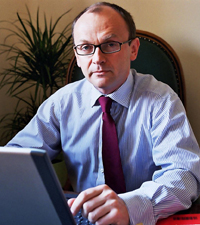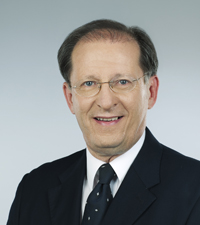 Heart Failure Congress 2012, which will be held in Belgrade, Serbia, from 19 to 22 May 2012, will be organised not only by the Heart Failure Association of the European Society of Cardiology (HFA of the ESC) but also in conjunction with the European Section of the International Society for Heart Research and the ESC Working Group on Myocardial Function. The aim of joint Scientific Committee is to create an exciting forum for both clinicians and scientists to present, hear, exchange, and discuss the most up-to-date research and clinical findings in heart failure.
Heart Failure Congress 2012, which will be held in Belgrade, Serbia, from 19 to 22 May 2012, will be organised not only by the Heart Failure Association of the European Society of Cardiology (HFA of the ESC) but also in conjunction with the European Section of the International Society for Heart Research and the ESC Working Group on Myocardial Function. The aim of joint Scientific Committee is to create an exciting forum for both clinicians and scientists to present, hear, exchange, and discuss the most up-to-date research and clinical findings in heart failure.
Integration of pharmacology and technology in the era of personalized heart failure management will be the overarching theme of the programme (including the management of comorbidities, risk models, decision support systems, and cell therapy), with the interpretation and application of the latest clinical trial results given centre stage. Based on delegate feedback from previous meetings, these topics will be covered in a variety of formats and by colleagues from many different countries.
In anticipation of Heart Failure Congress 2012, we had the honour to speak with Prof. Piotr Ponikowski – President of Heart Failure Association and Prof. Petar Seferovic – Heart Failure 2012 Scientific Chairperson.
The president of Heart Failure Association
1. Heart Failure Congress as an annual meeting has proved itself as an important in Europe, with more than 3,000 participants every year. What do you expect from coming congress in Belgrade?
In fact, annual HFA congress is for many years our flagship and most important meeting. We have been able to attract more than 3,000 medical professionals every year interested in the area of heart failure to meet and discuss all aspects linked with comprehensive heart failure management in everyday clinical practice and also present results from ongoing research in this field.
This year we will follow our tradition and present most updated practical approach to heart failure patients which would be dedicated to cardiologists, general practitioners and nurses. To make the congress even more attractive, there will be premiere presentation of the new ESC guidelines on the management of heart failure. We also use the opportunity to present the new results of large clinical trials, which indisputably would have the impact on clinical practice. Additionally, this year there will be joint meeting with International Society of Heart Research and ESC Working Group on Myocardial Function. It will form the unique platform for clinicians, translational and basic scientists to sit together and discuss the most attractive research ideas.
Last, but not least, the initiative of Prof. Petar Seferovic, co-chairman of the meeting, needs to be mentioned. He has proposed to design the special track in local language with several presentations thoroughly summarising practical aspects of heart failure management and offering an opportunity to discuss all the difficult and controversial issues.
2. Heart Failure Congress 2012 will be significant event for Serbia and its cardiology. Could you tell us the reasons for choosing Belgrade as a host for it?
The whole idea HFA Board wants to follow is to organize our flagship event in different country every year, which is always a good opportunity to attract and involve local people and promote heart failure aspects in local cardiology societies.
This time we will move to Belgrade as we strongly believe that Serbia fully deserves to run the meeting. We have been seeing fast development in the cardiovascular healthcare in Balkans area and regrettably I must say that we have never been there with our congress.
Additionally, Belgrade is lovely and attractive city which would warmly welcome our meeting. What is also of crucial importance, we have real local Champion in Belgrade, Prof. Petar Seferovic who is the member of our HFA Board. He has proven to be fully devoted to this meeting I have no doubts that it guarantees the success.
The Chair of the scientific programme
1. The main theme of the congress this year is “Treatment of heart failure: integrating pharmacology and technology”. Could you tell us more about this theme?
The major issue in prevention and treatment of heart failure is timely diagnosis. We are happy to announce that the new 2012 Guidelines for diagnosis and treatment of heart failure will be introduced during the Belgrade meeting. These guidelines are offering the integration of the new treatment modalities and device therapies within the previously defined algorithm of heart failure.
New treatment modalities, especially aldosteron antagonists and heart rate modifiers will provide superior symptom control and long term survival. The combination of the optimal medical therapy and devices, described in guidelines, will give to cardiologists more opportunities for successful control of progression of heart failure.
2. It is well known that the cardiology is the branch of medicine that has the fastest growing. What are the latest updates in treatment of heart failure that will be presented of the congress?
We are witnessing the introduction of the new drugs and devices in heart failure recently. The new entities, eg. heart failure with preserved ejection fraction, are defined as well as the importance of the co morbidities in long term survival of heart failure patients.
The role of revascularization and corrective surgical treatment in heart failure is better recognized on the basis of the new studies. The importance of cardiac resynchronization therapy within the frame of the clinical approach to heart failure patients is redefined and further investigation on myocardial regeneration in conducted.
The new and exciting combining strategies will be presented which are offering additional therapeutic benefit.
3. In your opinion, how developed is cardiology in the region of Southeast Europe?
There are significant differences in the quality of diagnosis and treatment of heart failure throughout Europe. Several major epidemiological studies in heart failure demonstrated the inadequacies of the health care in heart failure in South-Eastern Europe.
heart failure throughout Europe. Several major epidemiological studies in heart failure demonstrated the inadequacies of the health care in heart failure in South-Eastern Europe.
One of the major goals of Heart failure Association of the ESC is to improve the quality of care in the countries with less developed medical practice. The major focus of HFA on this issue was demonstrated in organizing Heart Failure National Societies Summit in October 2011 in Belgrade.
During the Summit, the organizational issues in heart failure treatment in South-Eastern Europe, including Russia, were discussed. These initiatives need to be continued on the permanent basis, with definition of the Heart Failure Centres of Excellence in these countries, which can be the starting point for the better integration of these countries within more developed medical systems.









































 Srpski
Srpski English
English